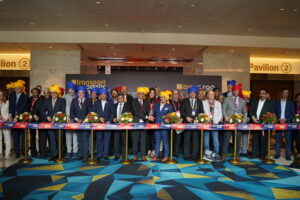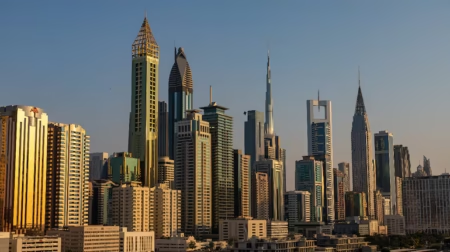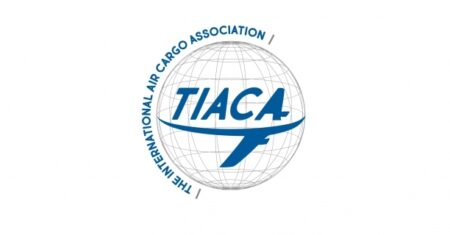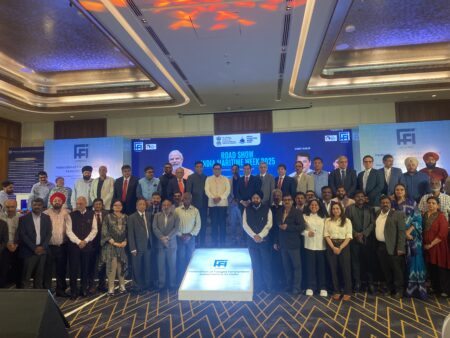
The Federation of Freight Forwarders’ Associations in India (FFFAI) signed a Memorandum of Understanding (MoU) with the Myanmar International Freight Forwarders Association (MIFFA) at the former’s Mumbai Head Quarters. The FFFAI Chairman, Shankar Shinde, and MIFFA Chairman, Dr. Aye Aye, signed the agreement in the presence of other Office Bearers and Executive Committee Members of the two bodies. The MoU aims to facilitate bilateral trade between India and Myanmar.
As per the MoU, the two parties will record and form a framework for understanding to strengthen, promote, and push cooperation between the two associations for the mutual benefit of members and the trade. The main activity areas include trade support, women’s participation and empowerment, technology exchange, youth promotion, skill development and training, member support, networking, business opportunities and infrastructure development towards better connectivity for members.
MIFFA delegates present for the signing of the MoU were Hla Hla Yee, Secretary General; Ohn Mar Maw, Joint Secretary; Pyei Phyo Aung, Auditor; Yin Yin Htay, Executive Committee Member; and the members Kyipyar Min Tun, Tun Tun Linn, Moh Moh, Phyo Thanda, and Kyaw Thet Linn.
Following an invitation from MIFFA, an Indian delegation of the FFFAI Women’s Wing led by Convenor Chaitaly Mehta and Mentor Philomena V. Pereira will soon visit Myanmar to explore future opportunities and business networking.
Myanmar is one of the largest exporters of pulses and beans to India, while India mainly exports pharmaceuticals to Myanmar. Currently, the Indian Government is focusing on enhancing cooperation between the two countries in alignment with its ‘Act East’ and ‘Neighborhood First’ Policies. In addition, India shares religious, linguistic and ethnic ties with Myanmar, the only ASEAN country adjoining India and is a gateway to South East Asia.
India is building USD 484 million Kaladan Multimodal Transit Transport Project to connect Kolkata Port with Myanmar’s Sittwe Port. It is expected to resolve the logistics infrastructure and connectivity issues. Moreover, multimodal corridors are also being created to promote regional connectivity and development. On the other hand, logistics service providers are setting up regional infrastructure to cater to the massive demand for proper cold storage, warehousing, and other logistics facilities.











